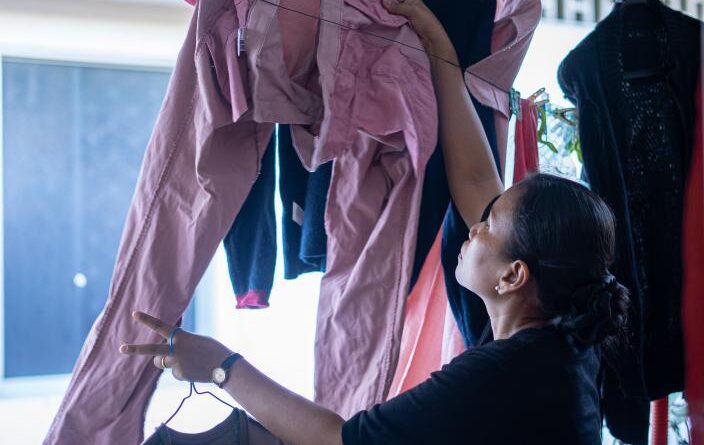New ILO report highlights urgent need for improved labour and social protection for domestic workers in ASEAN
A new report by the International Labour Organization (ILO) highlights the critical need to improve labour and social protection for domestic workers across the 10-member Association of Southeast Nations (ASEAN) region.
The report entitled Labour rights and social protection coverage for domestic workers in ASEAN finds that despite their essential role in supporting households and economies, domestic workers, many of whom are women and migrants face significant gaps in protections that affect their well-being and economic security.
There are about 38.3 million domestic workers employed in the region, of whom over 80 per cent are women. Despite the significant economic and social value of the sector, an overwhelming 84.3 per cent of domestic workers are estimated to be in informal employment, and as a result, less than 16 per cent enjoy social insurance. Consequently, many have no protection in the event of workplace injuries, illness, or pregnancy as well as inadequate financial security in old age.
“A key takeaway is that the effective inclusion of domestic workers into social security systems requires labour legislation and social security policies to accommodate all types of employment statuses and arrangements,” the report states, referencing the myriad arrangements under which domestic work is conducted to meet the varying needs of employers and domestic workers in different contexts.
The report recommends that governments and policymakers prioritize the formalization of the domestic work sector and ensure that domestic workers receive equitable rights and protections.
In addition, it emphasizes the importance of portability agreements for migrant domestic workers. These agreements allow workers to transfer and maintain their social security benefits across borders, avoiding double contributions and ensuring continuity of benefits. Additionally, the report advocates for compulsory participation in social security schemes for domestic workers and their employers to ensure equal protection.
“Extending social protection to domestic workers in ASEAN is both a moral obligation and vital for sustainable development. These essential workers, predominantly women and often migrants, are crucial to our societies but remain deeply marginalized. Comprehensive, inclusive policies are essential to ensure their rights and well-being”, said Marielle Phe Goursat, ILO Project Manager and one of the lead authors of the report.
Read more @ilo











